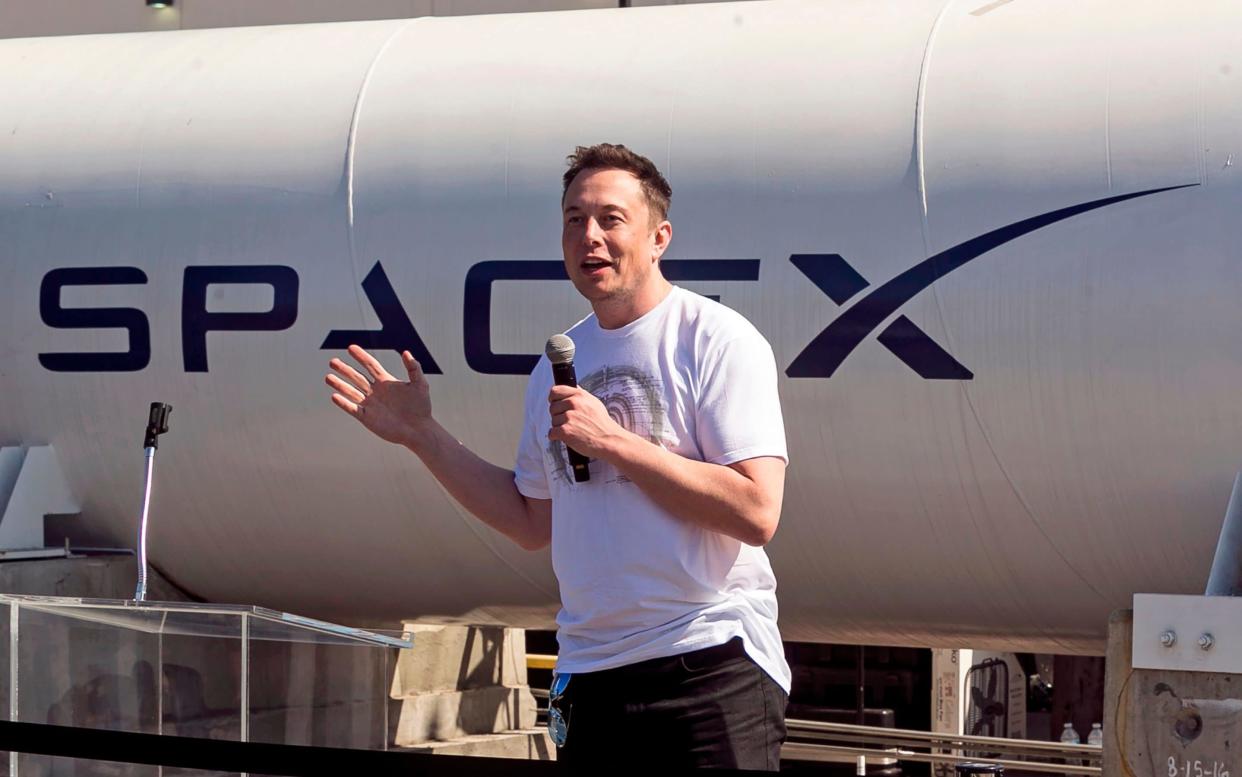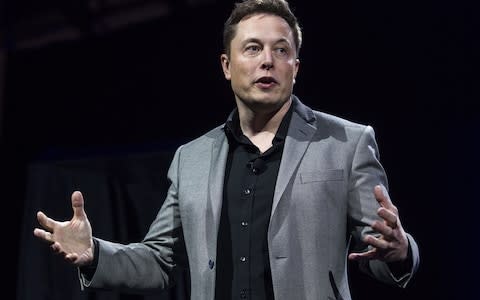Elon Musk's secret SpaceX school for child entrepreneurs, AI experts and coders

Billionaire Tesla founder Elon Musk has tried his hand at cars, rockets, tunneling and even hopes to colonise Mars, but one of his most secret ventures has remained hidden at his SpaceX campus.
The controversial billionaire has founded a school, called Ad Astra, which is based in his rocket company's offices in Hawthorne, California.
Ad Astra is one of Musk's most personal ventures. After taking his five children out of school in 2014, Musk founded Ad Astra as a school project dedicated to the next generation of child geniuses.
The project is unlike other schools in the US. Its loose curriculum focuses on projects the entrepreneur is most interested in, from artificial intelligence and machine ethics to robotics classes and coding. In a move that would horrify many parents, it has no room for languages or sport.
Musk founded the experimental school in 2015 to “exceed traditional school metrics on all relevant subject matter through unique project-based learning experiences,” according to a regulatory filing discovered by tech website Ars Technica.
While Musk is normally happy to grandstand about his various projects, Ad Astra, which comes from the Latin meaning "to the stars", is a mostly private venture. It educates children from seven to 14, starting out with a class of eight including Musk's own children. It has since grown to around 40 students made up of gifted applicants and the children of SpaceX employees.
According to the filing the school is currently entirely funded by Musk. The document reveals the school emphasises "ability over age" for group projects, with study of science, math, engineering and ethics. It adds the school will develop "remarkable people imbued with a strong sense of justice". It will cater for up to 50 students.

There is little else to even prove the school exists. A website for Ad Astra has only a home page and a link for current parents.
In a rare interview last year, head teacher Joshua Dahn revealed some insights into how the school operates.
According to the teacher, the school day lasts from 8.30am until 3.30pm, although it is intensive with "no down time". Classes focus around projects rather than traditional disciplines. Students do, however, learn to code in multiple software languages.
There are no foreign languages taught, based on a belief that soon computers will be able to help humans automatically translate into any language. Sport is also off the timetable, although a casual dodgeball game is encouraged after lunch.
Children from seven to 14 work together. "We take the most precocious kid we can find who can keep up with kids who are a bit older," said Dahn.
Some of the class projects would not be found on your typical ten-year-old's curriculum. Ethical AI and decision making play a core part, stemming in part from Musk's own views on AI, which he has described as "a fundamental risk to the existence of civilisation".
About | SpaceX
Dahn described one problem-solving exercise, called "The Lake", which sees students discussing a town with a factory that is polluting the local water and killing wildlife. The factory employs all the people in the town, so voters keep politicians who favour the factory in power. Students are asked to decide: who is most to blame for the pollution, the voters, the politicians or the factory owners?
Other projects include a diplomatic exercise, where students take up roles as delegates from North Korea, China and the US, and debate North Korea's nuclear programme. Class projects from building battle robots to an internal "bazaar" with its own currency teach children about mechanics, coding and economics.
There is no A to F grading system, rather, for many projects, children are given critical and honest feedback from teachers and their peers.
The school is also focused on developing new entrepreneurs, focusing on "ethics and morals and the whole idea of creating an ethical leader... through play and scenarios," according to Dahn.
Of course, there is still homework, although this often takes the form of coming up with ideas or debating with parents. "You won’t see a worksheet to grind through at Ad Astra," the head teacher said.

